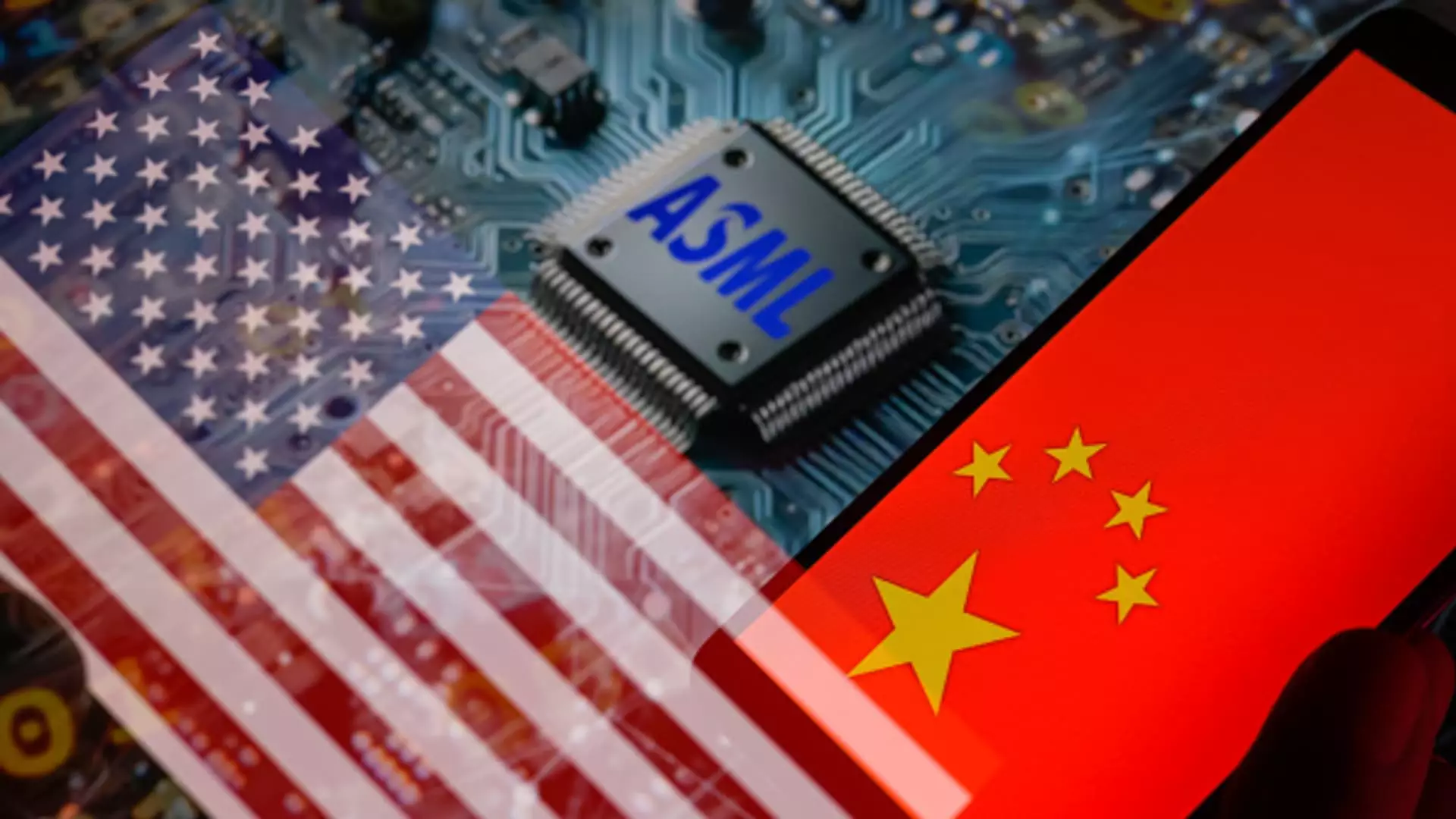On Thursday, shares of leading semiconductor equipment companies saw a notable uptick, influenced by speculation regarding U.S. sanctions on China’s semiconductor sector. The fluctuating landscape of global technology has investors closely monitoring companies like ASML and Tokyo Electron, which experienced a rise of approximately 3.6% and over 6%, respectively. This market movement stems from a Bloomberg report suggesting that the U.S. government is contemplating new restrictions on semiconductor equipment and AI memory chip sales to China. Unlike previous stringent proposals, these rumored actions may represent a more measured approach, easing investor anxieties.
The U.S. Commerce Department’s silence following the Bloomberg report underscores the complex and often ambiguous strategies employed in international technology regulations. Washington is reportedly weighing whether to tighten its export blacklist, known as the Entity List, particularly in relation to Chinese technology titan Huawei. Notably, firms like ChangXin Memory Technologies, a strong contender in the memory chip market, will not be added to this list, which suggests a nuanced strategy that could mitigate potential backlash from within the semiconductor supply chain.
Analysts from Jefferies recently projected a significant revenue decline for ASML, estimating a 30% drop in Chinese sales for the coming year. However, the exclusion of ChangXin could lead to a less severe decline, which would provide relief to ASML and its shareholders. The company occupies a pivotal role in the semiconductor supply chain, producing essential lithography machines for chipmakers. Any shifts in demand, either by restrictions imposed on manufacturers or changes in the political landscape, could have far-reaching consequences, not only for ASML but for the broader industry.
ASML’s challenges stem from its unique position in the global semiconductor ecosystem, where its advanced machines are crucial for the production of state-of-the-art chips. Historically, export controls have impeded the company’s ability to ship these critical components to China, hampering its growth in one of the world’s largest technology markets. Furthermore, recent regulations by the Dutch and U.S. governments have complicated the export of even less advanced machinery, tightening the noose around ASML’s operational capabilities in the region.
The potential easing of sanctions, coupled with a strategic exemption for certain Chinese companies, signals a cautious optimism for ASML and other foreign semiconductor suppliers. Any favorable regulatory changes could bolster sales, as it would enable these firms to navigate the volatile market landscape more effectively. However, the overall impact on the semiconductor sector will heavily depend on the U.S.’s capacity to manage its geopolitical tensions without stifling innovation and growth in the high-tech industry. The evolving dynamics of international trade in semiconductor technology remain a focal point for investors and industry stakeholders alike.


Leave a Reply